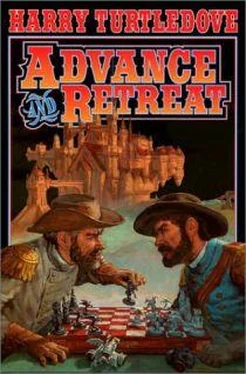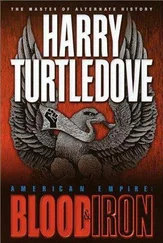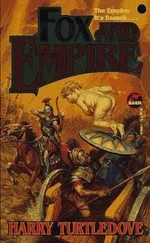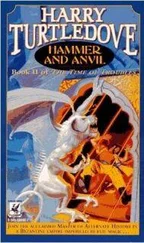He wasn’t wrong about that, either. Again, Ned said the only thing he could: “Lieutenant General Bell is gone. We won’t make the mistakes we did on that campaign, not any more we won’t.”
“Of course we won’t, gods damn it.” The sergeant was as plain-spoken as any other freeborn Detinan, too. “We can’t make those mistakes any more. We haven’t got enough men left to make ’em.”
One more painful truth. Ned of the Forest shrugged. “You can either do the best you can as long as you’ve got a unicorn under your butt, or else I’ll muster you out and send you home right this minute. You won’t be a deserter, on account of I’ll give you a discharge.”
He waited. If the sergeant really was fed up and called him on that, he would have to let him go. But the underofficer said, “Oh, I’ll stick. You won’t be rid of me that easy. But I’ll be gods-damned if I like the way things are going.”
“I don’t reckon anybody does-except the southrons, I mean,” Ned said. “But we’re still here, and we’ve still got our crossbows. If we quit, King Avram wins. To hells with me if I want to make things that easy for him. Now come on.”
This time, he didn’t give the sergeant a chance to reply. He urged his own unicorn up to a trot. The squad-including the sergeant-followed him. Ned wasn’t completely comfortable when he stayed in the saddle too long. Old wounds pained him. He didn’t grumble about them. They didn’t keep him from getting about, or from fighting. There, if nowhere else, he sympathized with Lieutenant General Bell. Poor Bell had been a fine officer leading a brigade when he was all in one piece. He’d been a disaster in the larger commands he’d got after he was wounded. How much did the endless swigs of laudanum and the inability to go forward and see for himself have to do with that? More than a little, Ned feared.
A fine mist began drifting down from a lead-gray sky. Even this far north, where winters were relatively mild, this time of year the land seemed dead. Trees and bushes stood bare-branched, skeletal. Grass was yellow and brown, dry stalks bent and broken. Somewhere off in the distance, a raven’s croak sounded like the chuckle of a demon mocking the hopes of man.
Ned’s troopers muttered among themselves. He knew what they were muttering about, too: they were wishing they hadn’t heard the raven. The big black birds had an evil reputation, no doubt because they ate carrion. Ned felt a certain amount of superstitious dread, too, but he suppressed it. He had other things, things of the real world, to worry about, and for him things of the real world always counted for more than ghosts and spirits and haunts.
Would the desertions stop? How much difference would it make if they did? Would Doubting George or Hard-Riding Jimmy try to push past the Franklin River and finish off the remnants of the Army of Franklin here in Honey? If they did, what could Ned’s unicorn-riders do to stop them? Anything at all?
We’ve got to keep trying, Ned thought. If we don’t, then this war will end, and sooner, not later. The serfs’ll be off the land forever, and the southrons’ll go around telling ’em they’re just as good as real Detinans. Ned squared his broad shoulders and shook his fist toward the south in stubborn defiance. Can’t have that, gods damn it.
* * *
Marthasville again. Rollant hadn’t expected to see the biggest city in Peachtree Province again, not till John the Lister’s men got the order to move west and rejoin General Hesmucet’s army. Even after boarding the glideway carpet in northern Franklin, Rollant hadn’t expected to stop in Marthasville for very long. But here he was, cooling his heels in the town for a second day now. Too many glideway carpets had come into the city all at once, from east and west and north and south, and the officers in charge of such things were still untangling the snarl.
Before the war-and even during it, as long as false King Geoffrey’s men held the place-Marthasville had had pretensions of being a big city. Those pretensions made Rollant, who lived in New Eborac City, the metropolis of Detina, laugh. More than half the streets here were nothing but red dirt-red mud, at this season of the year. Cobblestones would have done wonders to improve them, but nobody’d bothered with-or been able to afford-cobblestones here. That by itself would have been plenty to take Marthasville out of the big-city class, as far as Rollant was concerned.
And Marthasville now wasn’t what it had been before Hesmucet captured it from the traitors. Hesmucet had burned it before setting out on his march across Peachtree to Veldt, and his siege engines had had their way with it even before it fell into his hands. Blackened ruins lined the muddy streets.
Here and there, people were already rebuilding. Elegant homes and fancy shops might have perished in the flames, but shacks built from salvaged lumber and tents sprouted everywhere. A forest fire burned oaks and maples, but toadstools and poison sumac sprang up where they’d stood. The shabby new structures catered to soldiers: they were saloons and brothels and gambling dens, all designed to separate southrons from silver as swiftly as they could.
Provost marshals patrolled the streets, but they could do only so much, especially now with the glideway snarl. Men in gray tunics and pantaloons wanted what the northerners were selling. If some of them ended up poisoned by bad spirits, or poxed or rolled in the brothels, or fleeced in the gambling dens, they didn’t seem to care. Every bit of it was part of having a good time.
Nobody in Marthasville knew what to make of Rollant. A blond with sergeant’s stripes? Northerners stared. Some of the Detinans from Marthasville glared. Rollant smiled back. Why not? He had the power of King Avram’s army behind him, and King Avram’s army had proved itself mightier than anything in the north.
The blonds who lived and worked in Marthasville stared at Rollant-and at the stripes on his sleeve-too. But they didn’t glare. He always collected a caravan of little blond boys who followed him through the streets. They did their best to imitate his marching stride, a best that was usually pretty funny. Blond men doffed their hats and bowed as if he were a marquis. And the smiles some of the blond women sent his way acutely reminded him of how long ago he’d left Norina.
Not for the first time, Smitty teased him about that: “If you don’t want ’em, by the Sweet One’s sweet place, steer some of ’em my way. That one little sweetie back there…” His hands shaped an hourglass in the air.
Rollant knew exactly which girl Smitty meant. He’d noticed her, too. He hadn’t fooled around on his wife, but he wasn’t blind. He said, “I’m not stopping you from chasing her.” Even that took a certain effort. Detinans in the north had taken advantage of blond women too freely for too long to let him feel easy about encouraging any Detinan man to make advances to a woman of his people.
He knew more than a little relief when Smitty shook his head. “She didn’t even see me,” his comrade said mournfully. “But you… she looked like she wanted to have you for breakfast.”
“Don’t talk that way,” Rollant said. When Smitty did, he felt the urges he was trying to ignore, and all the more acutely, too.
“How shall I talk? Like this?” Smitty put on what he imagined to be a northern accent. Still using it, he went into lascivious detail about what he would have liked to do with the pretty blond girl. Rollant wanted to clout him over the head with a rock. That seemed to be the only way to make him shut up.
“I never thought I’d be glad to get back on the glideway carpet and away from this place,” Rollant said at last.
Читать дальше












